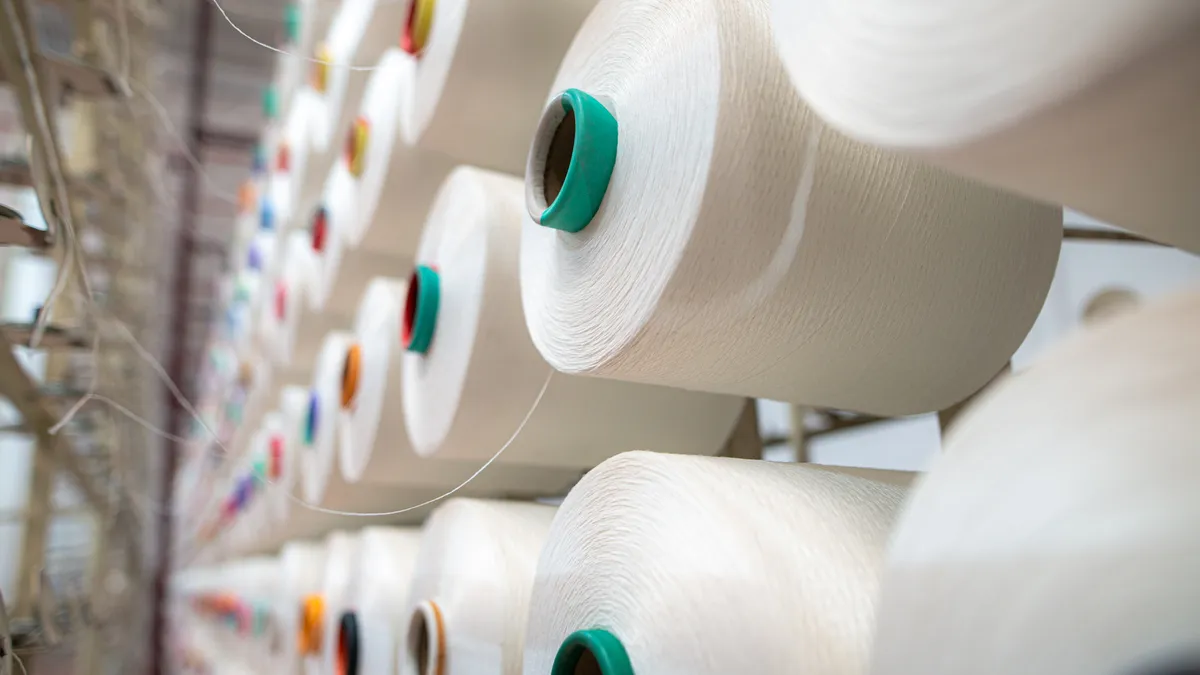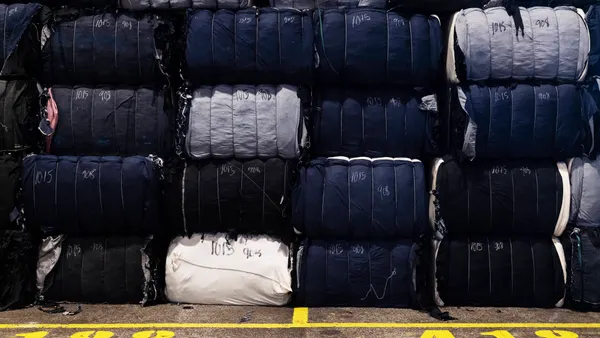Dive Brief:
- Major fashion brands are still using synthetic fibers, despite mounting regulatory pressure, nonprofit Changing Markets Foundation said in a report released Tuesday.
- The nonprofit studied the use of synthetic fibers at 50 companies in fast fashion, sports and luxury. According to the report, Zara owner Inditex uses a higher volume of synthetic fiber than any other brand studied, and its use of fossil fabrics grew by nearly a fifth since Changing Markets’ previous survey. Meanwhile, fast fashion giant Shein had the highest ratio of synthetic to natural fibers, with 82% of its material output made from fossil sources.
- Eleven out of 23 companies that provided additional information to Changing Markets said they had increased their use of fossil fuel-based fabrics, mainly polyester. Three companies said they reduced the use of these materials.
Dive Insight:
The study was conducted by the Changing Markets Foundation along with the Clean Clothes Campaign, Fashion Revolution, No Plastic In My Sea and the Plastic Soup. The findings were gathered from a survey questionnaire sent to fashion brands, as well as information publicly available on each company’s website.
However, 54% of the companies contacted “failed to respond to the survey in part or full,” compared to 44% in 2022, and 17% in 2021, according to Changing Markets.
Out of the 50 companies evaluated for the current survey, six publish the volume and share of their synthetics use online, including Zara owner Inditex, Lululemon, Mango and Nike, according to a press release about the new report. However, several other companies provided their synthetic use to the survey.
Report authors said the lack of publicly available information on synthetic fiber use shows that “corporate secrecy” around this issue has risen.
Synthetic fibers account for 69% of textile production, according to Changing Markets, and that number is expected to rise to 73% by 2030. Report authors argue that the versatility and affordability of these materials, particularly polyester, “have enabled fashion brands to saturate the market with cheap clothing, fueling the cycle of consumption and disposal known as fast fashion.”
Two of the 50 companies, Reformation and Hugo Boss, were defined by Changing Market as “leading the shift” in their approach to synthetic materials. Reformation said it will phase out virgin synthetics by 2030, and reduce all synthetics by less than 1% of their total sourcing by 2025, according to the report. Meanwhile, Hugo Boss plans to eliminate polyester and polyamide by 2030, per the report. However, Changing Markets noted that Hugo Boss had a 143% increase in polyester materials from 2020 to 2023, and “to remain in the top category, Hugo Boss must establish clear milestones and show steady progress towards reducing its reliance on synthetics.”
“The fashion industry stands at a critical crossroads,” Changing Markets said in the report. “In the EU, the sector is facing regulatory measures that would address its environmental impacts for the first time. However, the level of ambition of the upcoming legislation remains to be seen and it is concerning that the industry is showing low levels of support. Meaningful change will require strong measures that decouple the sector from its continued reliance on fossil fuels and generation of large volumes of plastic waste.”











